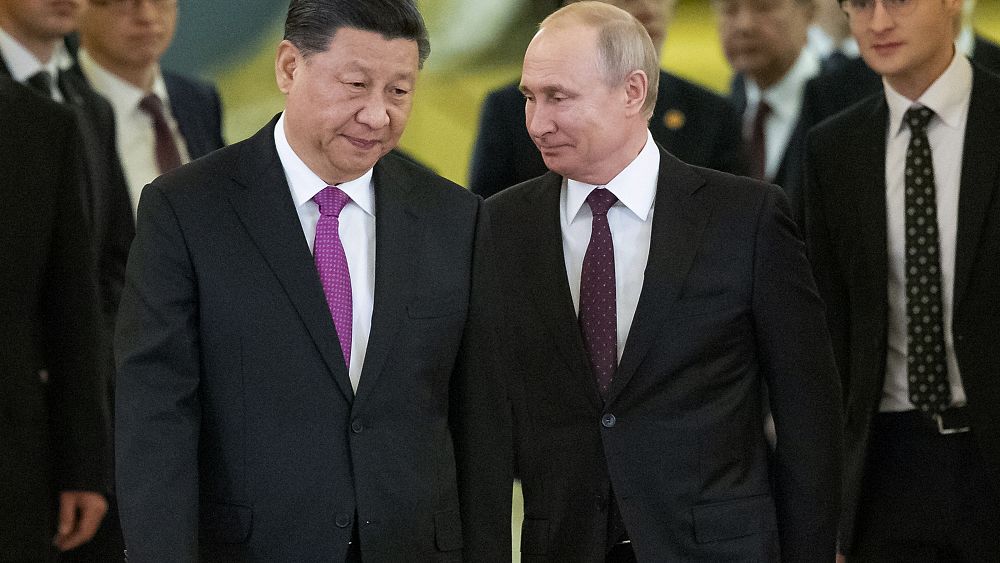
Just days after the International Criminal Court (ICC) issued a warrant for his arrest, Russian President Vladimir Putin received China’s leader Xi Jinping in what Beijing has called a “journey of friendship” aimed at “playing a constructive role in promoting peace talks” over the war in Ukraine.
It comes after China scored a major diplomatic victory by brokering a surprise rapprochement between Saudi Arabia and Iran, helping the two archrivals restore ties. Yet hours after the announcement of Xi’s trip, the ICC issued an arrest warrant for Putin, accusing him of war crimes over Moscow’s forcible deportation of Ukrainian children.
For the United States and much of Europe, Xi’s visit is a stark show of support for the increasingly isolated Putin, at a time when his military is running out of supplies and Russia’s economy is struggling under Western sanctions.
In recent weeks, Western officials have voiced concerns that China is considering providing lethal assistance to Russia’s military. Beijing has denied the allegation, and instead accused the US of prolonging the war by “adding fuel” to the battlefield and providing Ukraine with weapons.
Putin will host Xi two days after he made a surprise visit to the occupied city of Mariupol in an apparent show of defiance towards the International Criminal Court and the west in general.
‘Peacemaker’
Xi will be walking a diplomatic tightrope in Moscow, as he seeks to present China as a neutral peace broker while deepening ties with Russia, without further antagonizing Europe – a key trade partner Beijing has sought to woo away from the US.
The timing of the long-anticipated meeting is no coincidence, as it allows the Chinese leader to capitalise on the momentum of Beijing’s recent diplomatic win in the Middle East to shape – or give the appearance of shaping – the trajectory of the war in Ukraine, he said.
“But the war will be a much taller task. The key question is whether, and to what extent, Xi tries to use his leverage to shape Russia’s behaviour in the war going forward,” said Brian Hart, a fellow with the China Power Project at the Center for Strategic and International Studies.
“So far, we have not seen Xi take tangible steps to try to bring the war to an end.”
One-sided and ineffective
White House National Security Council spokesman John Kirby said any framework offered by Beijing would be “one-sided and reflect only the Russian perspective.”
“A ceasefire now is effectively the ratification of Russian conquest,” he said.
“Russia would be free to use a ceasefire to only further entrench their positions in Ukraine to rebuild, refit and refresh their forces so that they can restart attacks on Ukraine at a time of their choosing.”
Hart said Xi’s visit is unlikely to have any drastic impact on the course of the Ukraine war.
“Neither Moscow nor Kyiv appear ready to make the concessions needed to bring the war to an end, and that is not something Beijing can fundamentally change,” he said.
“Beijing might be able to pressure Putin to make some actions that impact the war on the margins, but so far that has not happened.”

